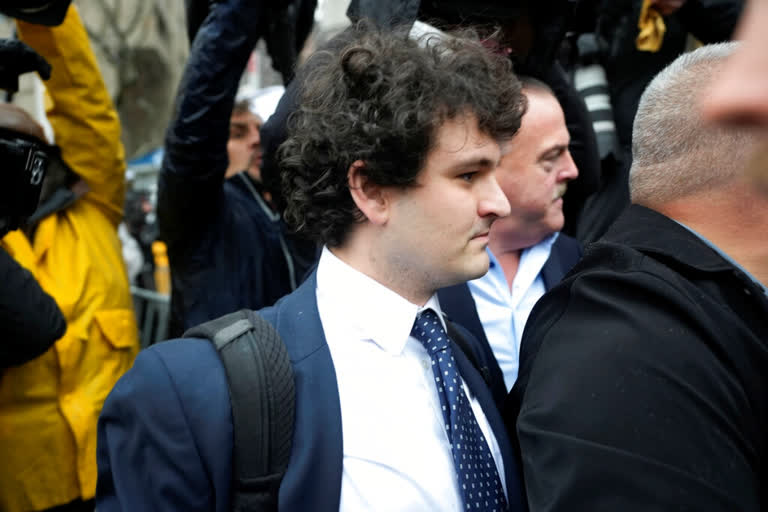New York: FTX founder Sam Bankman-Fried pleaded not guilty in Manhattan federal court Tuesday to charges that he cheated investors and looted customer deposits on his cryptocurrency trading platform as a judge set a tentative trial date for October. Bankman-Fried, 30, denied charges accusing him of illegally diverting massive sums of customer money from FTX to make lavish real estate purchases, donate money to politicians and make risky trades at Alameda Research, his cryptocurrency hedge fund trading firm.
Bankman-Fried's attorney, Mark Cohen, announced his client's plea, saying: "He pleads not guilty to all counts." Afterward, Judge Lewis A. Kaplan set a tentative trial date of Oct. 2, saying he might move it forward or backward a day or two. A prosecutor estimated it would take the government a month to present its case to a jury, while a defense lawyer projected putting on a case lasting two to three weeks.
Wearing a backpack, Bankman-Fried marched through a crush of cameras as he entered the courthouse on a rainy day to make his first appearance before Kaplan. In the courtroom, Bankman-Fried appeared relaxed through most of the half-hour-long proceeding, occasionally speaking to a lawyer next to him. When he left court, he did not speak to reporters outside.
After Bankman Fried pleaded not guilty, the judge discussed with lawyers a schedule for proceeding toward trial, setting April dates for defense lawyers to submit arguments challenging the validity of the charges and for prosecutors to respond to them. Oral arguments were set for May 18. The judge also added to Bankman-Fried's bail conditions by banning him from accessing or transferring cryptocurrency or assets of FTX or Alameda Research or any assets purchased with funds from the companies.
He did so after Assistant U.S. Attorney Danielle Sassoon said Bankman-Fried had worked with foreign regulators to transfer FTX assets to them after FTX declared bankruptcy and he knew U.S. bankruptcy authorities were also interested in those assets. Sassoon said Bankman-Fried expressed to a co-conspirator that he knew there was competition between U.S. bankruptcy authorities and foreign regulators and he wanted to get the assets to the foreign regulators in part because he thought they'd be more lenient with him and he might be able to regain control of his business.
